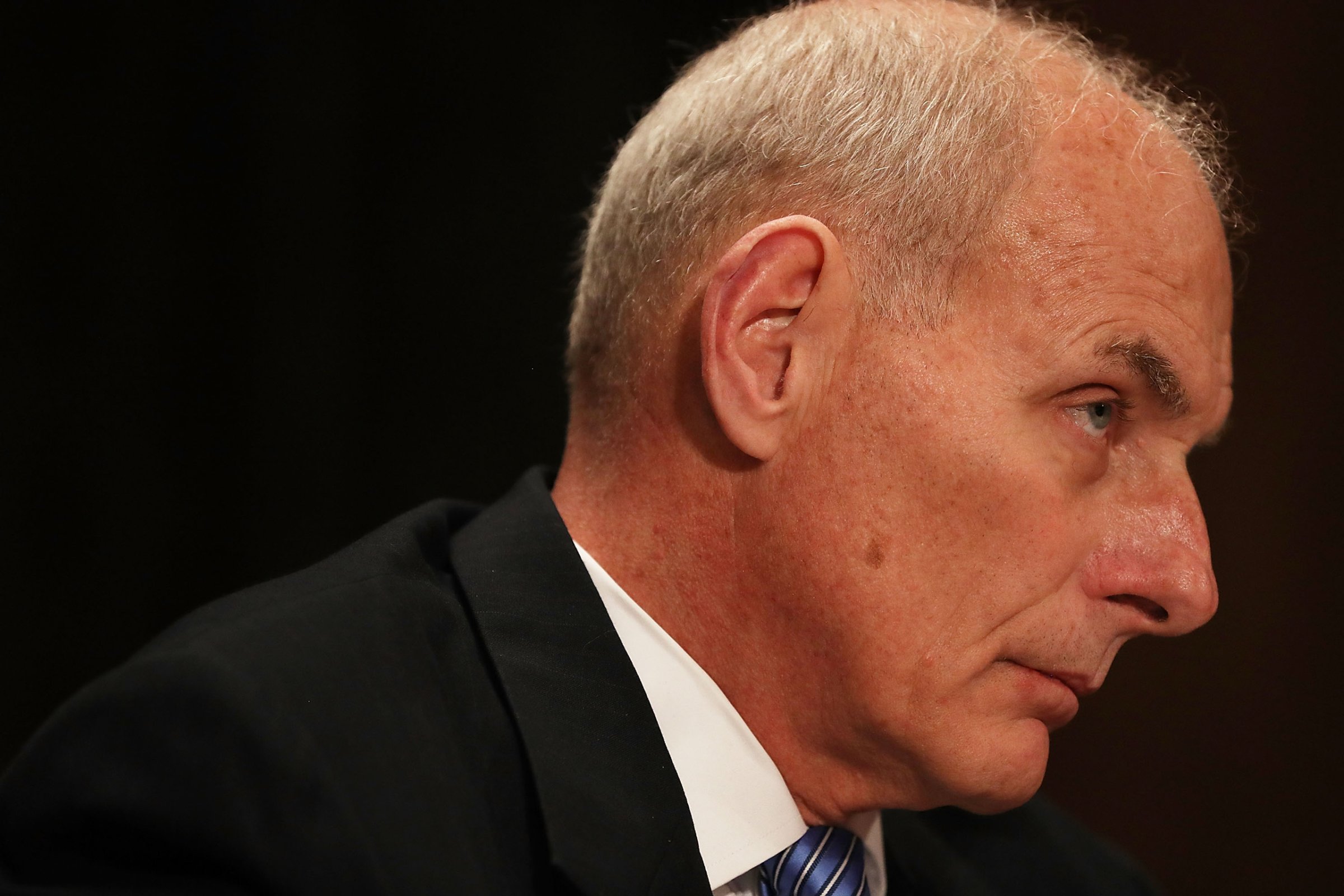
At a congressional hearing this week, DHS Secretary John Kelly said he doesn’t think the 120-day ban on refugee resettlement puts a real hardship on refugees who have “already been waiting a year or two” to find safety in the United States.
This could not be further from the truth.
For some of the world’s most vulnerable refugees, even a day-long delay could mean a death sentence. Consider the fate of the 9-year-old Somali child with congenital heart problems waiting at a refugee camp in Ethiopia, the 1-year-old Sudanese boy with cancer, or the Somali boy with a severe intestinal disorder living in a camp that doesn’t have the colostomy bags he needs.
The impact extends way beyond those who are in need of life-saving medical care, however, and will disrupt almost everyone in the process of resettlement. Each part of the refugee screening process has a narrow validity period. Medical tests can expire within three months, for example, while name checks and biometric screenings are valid for little over a year. This often leaves less than a two-month window during which all checks are simultaneously valid and refugees can travel. As each check clears at a different time, this makes the departure window for families even narrower, with only a few weeks or even days when all family members’ checks are valid.
Once approved for travel, refugees often sell their belongings to ensure they have some money upon arrival, give their shelters up to other refugees, and leave their jobs (if they were fortunate enough to be able to work in the country). To slam our doors shut to them and keep them in limbo, when they have already done all that we have asked of them, is simply un-American.
Clearly, the Trump administration’s executive order isn’t just a four-month “pause” on refugee arrivals — it throws a wrench into the entire resettlement process and sends refugees back to square one, requiring them to repeat aspects of a vetting process which is already extensive, and rigorous. The process can already take years, and due to the mandated sequencing of each step, one delay can result in a domino effect of expiring validity periods. A four-month delay will grind the entire refugee resettlement process to a halt, possibly for years.
This should concern Secretary Kelly, both due to the hardship it will, in fact, have on refugees, and also given the important role that refugee resettlement plays in U.S. diplomacy and advancing foreign policy objectives, including regional stability, international security and the war on global terror.
Let’s keep things in perspective: Refugees are people fleeing war, violence and persecution—and over half are children. Refugee resettlement is the last resort for people fleeing persecution, who can’t return to their home country and can’t rebuild their lives in the country where they initially sought safety. The United States hand-picks refugees for resettlement, prioritizing the most vulnerable. While some refugees live for years in camps, facing dire conditions and vulnerable to rape and abuse, most refugees live in urban situations in countries that don’t allow them to work or their children to attend school. Refugees struggle every day just to survive, to keep their children from starving, and to keep hope alive that the world will not turn a blind eye to their plight.
This executive order hastily changes decades of U.S. policy and directly contradicts longstanding American values of welcoming refugees fleeing persecution. Moreover, it perpetuates the false narrative that refugees are a danger to Americans–when in fact, they are not.
Instead of safeguarding our national security, the ban on refugees and Muslims actually puts our homeland at risk, reinforcing the false “Islam vs. West” dichotomy which terrorist organizations like ISIS exploit in their propaganda and recruitment materials. Case in point: many extremist sympathizers hailed the ban online–while national security experts warned that terrorist could use it as a recruiting tool.
If Secretary Kelly is serious about protecting our homeland, he must understand that a 120 day ban is indeed a great hardship for both refugees and our country overall. And he should urge President Trump to immediately rescind this misguided executive order.
Since 1946, Church World Service has supported refugees, immigrants and other displaced individuals, in addition to providing sustainable relief and development solutions to communities that wrestle with hunger and poverty. Learn more about CWS’ work at GreaterAs1.org.
More Must-Reads from TIME
- Where Trump 2.0 Will Differ From 1.0
- How Elon Musk Became a Kingmaker
- The Power—And Limits—of Peer Support
- The 100 Must-Read Books of 2024
- Column: If Optimism Feels Ridiculous Now, Try Hope
- The Future of Climate Action Is Trade Policy
- FX’s Say Nothing Is the Must-Watch Political Thriller of 2024
- Merle Bombardieri Is Helping People Make the Baby Decision
Contact us at letters@time.com